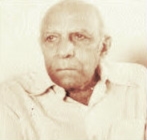Ghulam Abbas – غلام عباس
|
|
Ghulam Abbas (1909-1982) is considered to be one of the pillars of the grand tradition of Urdu short story, which continues to mesmerise the readers to date. Manto, Rajinder Singh Bedi, Krishan Chandar, Ismat Chughtai, Quratulain Haider. and Ghulam Abbas represent the golden era of Urdu literature with different techniques and schools of thought. Each member of this triumvirate perceived life differently and traversed a literary path of his own. Ghulam Abbas was born on the 17th of November 1909 in Amritsar. He received his early education in Lahore and at a very early age found himself responsible for the welfare of his family after his father‘s untimely demise. An avid reader and writer, he soon found opportunities to publish translations in several Urdu literary journals in Lahore. By the time he was not quite twenty, writing had become a regular source of income for him. This interrupted his education and it was only years later that he completed his Intermediate degree in 1944 from the Punjab University in Lahore. He soon became associated with Lahore’s well-known publishing house Darul Isha’at Punjab, established by Maulvi Mumtaz Ali (Imtiaz Ali Taj’s father). From 1928 to 1937, Ghulam Abbas served as the sub editor for the children’s magazine Phool and the women’s magazine Tehzeeb e Niswan. He wrote and translated several stories for children during this time, the most popularly received of which was his translation of Washington Irving’s Tales of the Alhambra. In 1938 Ghulam Abbas moved to Delhi where he became the editor for All India Radio’s magazine Awaaz. It was during this period that he also wrote his seminal short story Aanandi in 1933. (The story was adapted for the film Mandi by the Indian director Shyam Benegal). He continued to translate many texts and wrote several other original works until in 1948 his first collection of short stories, also titled Aanandi was published. The collection included Iss Hamaam Mein, which proved Ghulam Abbas’ mastery over lengthier stories. With the creation of Pakistan, Ghulam Abbas moved to Karachi and initiated Radio Pakistan’s magazine Aahung. In 1949 he became associated with the Ministry of Information and Broadcasting, and later with the BBC in London. Upon his return in 1952 he re-joined Radio Pakistan and remained there until his retirement in 1967. He published a collection of his stories Jaaray ki Chaandni in 1960 for which he was earned the Adamjee Literary Award. In 1969 his third collection of stories Kun Russ was published in Lahore. The story Dhanak was also published in the same year. (This was adapted by Ajoka Theatre in 2011 under the title Hotel Mohen jo Daro). In 1986 the author revised an earlier version of his story Gondni wala Takiya and published it in a book form. In this last phase of his career, he wrote many stories, some of which were not included in any publication and are therefore lesser known. A memorable work from this period, Reengnay Walay was initially published in the journal Naya Daur and has since been published in a collection of Ghulam Abbas’ short stories by Oxford University Press Pakistan in 2013. Other works include Chaand Tara, a collection of poems for children and a selection from the children’s magazine Phool. Ghulam Abbas was married twice. His first wife was called Zakira and he had five children with her including four daughters and a son. His second wife was an English woman named Christian (renamed Zainab) with whom he had a son and three daughters. She died on February 19, 2009 in Karachi, Pakistan. One daughter, named Mrs Mariam Shera founded the school in Pakistan, Froebel Education Centre which is located in Clifton. His other children, all of whom are resident abroad, are mostly in Canada. His eldest son, a medical doctor, Dr. Ali Sajjad Abbas, died in 2007 in western Canada of a heart related ailment. In 1967, Ghulam Abas was awarded the Sitara e Imtiaz Award by the Government of Pakistan. In the last years of his life he continued to live in Karachi and was associated several literary projects. A collection of his entire works, Zindagi Naqaab Chehray was compiled and published posthumously in 1984. For Hasan Askari, Abbas stands distinguished for his sense of serenity and restraint in contrast to his younger contemporaries who were in a rebellious mood and had developed a passion for bringing change in society. He says this is why Abbas failed to gain the kind of popularity the rebel story writers did, in spite of the fact that one of his short stories, ‘Anandi,’ was one of the biggest successes of that period. Quratulain Haider calls Ghulam Abbas the ‘empire builder’ of the short story tradition. She describes his style to be distinct in its silent yet confident approach that captures a reader’s attention without relying on overt or sensational approaches. Ghulam Abbas died in 1982 in Karachi.
Family Wife: Christian Zainab Abbas (née Vlasto)
موہنجو ڈارو ہوٹل کی اکہترویں منزل سے: “خدا کی بادشاہت” از غلام عباس
الحمرا کے افسانے غلام عباس کے افسانے: حاصل ہے پشیمانی از محمد سلیم الرحمان غلام عباس ان با کمال فکشن نگاروں میں شامل ہیں جن کے افسانے ہر نئے افسانہ نگار کو ایک مرتبہ غور سے پڑھنے چاہئیں۔ چاہے وہ ان کی طرح حقیقت پسندانہ روش اختیار کرنا چاہتا ہو، چاہے کسی نئے رنگ کو اپنانے کے لیے کوشاں ہو، غلام عباس سے کچھ نہ کچھ سیکھ سکتا ہے۔ غلام عباس کی زبان اور بیانیہ قابلِ توجہ ہیں۔ یہاں صفائی اور سادگی سے واسطہ رکھا گیا ہے۔ ان کے ہاں کوئی عبارت آرائی نہیں، کوئی لفظ فالتو معلوم نہیں ہوتا، کوئی واقعہ، چھوٹا یا بڑا، بے قرینہ نہیں۔ ایسا دکھائی دیتا ہے کہ ساری کہانی کا اوّل، درمیان اور آخر احتیاط سے سوچ کر اور اتنی ہی احتیاط سے قلم بند کر لیا گیا ہے۔ ممکن ہے ایسا نہ ہو۔ افسانہ لکھتے وقت وہ اسے ادلتے بدلتے رہتے ہوں۔ لیکن افسانے جس شکل میں ہم تک پہنچے ہیں، اس سے بے ساختگی کا تاثر ہی اُبھرتا ہے۔ Radio Pakistan – Interviewed by Sahab Qazalbash -Part I (14:26)
|

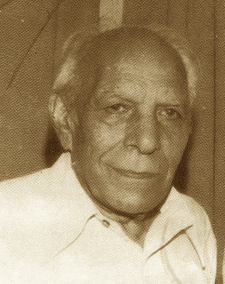
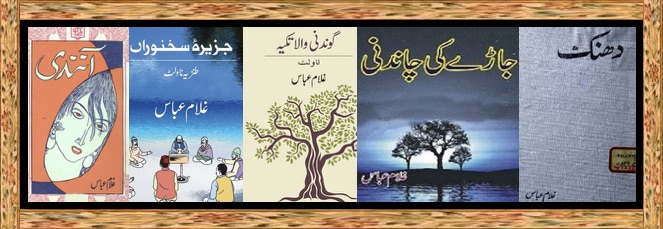
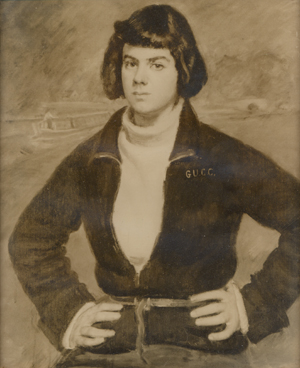
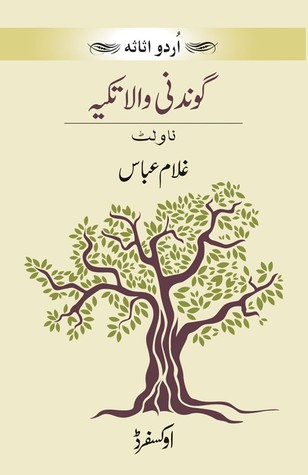 Ghulam Abbas and the short story tradition
Ghulam Abbas and the short story tradition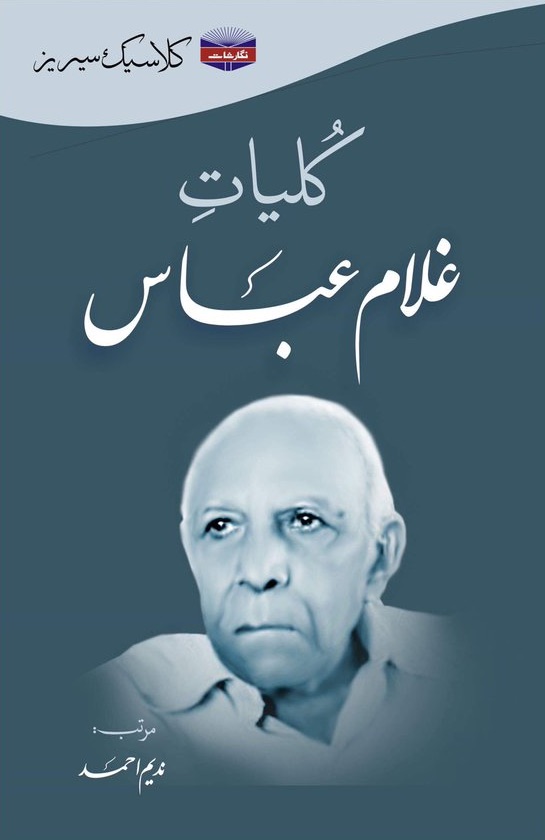 Kulliyat e Ghulam Abbas –کلیات غلام عباس
Kulliyat e Ghulam Abbas –کلیات غلام عباس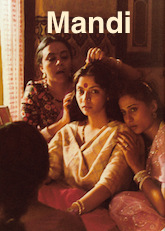 آنندی -از غلام عباس
آنندی -از غلام عباس